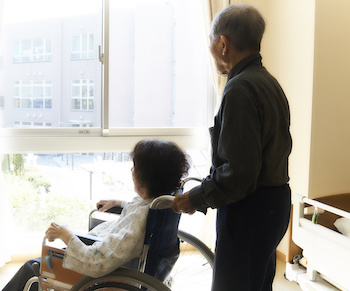Despite strong safeguards to protect residents from unwanted and unsafe discharges from a nursing home, inappropriate discharges are a growing problem for seniors and their families. Below is a joint statement from LTCCC and the Center for Medicare Advocacy on new findings related to this problem. The statement can also be found on our website at https://nursinghome411.org/nursing-home-study-finds-discharges-linked-to-medicare-copayments/.
NURSING HOME STUDY FINDS DISCHARGES LINKED TO MEDICARE COPAYMENTS
Background. Medicare beneficiaries are entitled to a maximum of 100 days of skilled nursing facility (SNF) care in a benefit period when they meet specific coverage criteria. However, Medicare Part A only covers the full cost of a beneficiary’s skilled care during the first 20 days of a nursing home stay. Starting on day 21, beneficiaries are responsible for paying a daily copayment ($170.50 in 2019). A recently published study in the Journal of the American Medical Association (JAMA) Internal Medicine, entitled “Association Between High Discharge Rates of Vulnerable Patients and Skilled Nursing Facility Copayments,” indicates that nursing homes seem to be discharging residents immediately before the daily copayment takes effect.
 Study. Looking at a population of beneficiaries in traditional Medicare, the study finds that Medicare beneficiaries are “more often discharged from SNFs on benefit day 20 than on benefit days 19 or 21.” Beneficiaries discharged from nursing homes tend to be racial and ethnic minorities and to live in lower socioeconomic areas. Additionally, beneficiaries discharged on day 20 are also “more likely to have 5 or more comorbidities (42.2%) than patients discharged on days 19 and 21 (39.9% and 40.6%, respectively . . .).” The study’s authors note that, in some cases, nursing homes may be “prematurely discharg[ing] some patients to avoid the risk of accruing bad debt from partially uncompensated postacute care.”
Study. Looking at a population of beneficiaries in traditional Medicare, the study finds that Medicare beneficiaries are “more often discharged from SNFs on benefit day 20 than on benefit days 19 or 21.” Beneficiaries discharged from nursing homes tend to be racial and ethnic minorities and to live in lower socioeconomic areas. Additionally, beneficiaries discharged on day 20 are also “more likely to have 5 or more comorbidities (42.2%) than patients discharged on days 19 and 21 (39.9% and 40.6%, respectively . . .).” The study’s authors note that, in some cases, nursing homes may be “prematurely discharg[ing] some patients to avoid the risk of accruing bad debt from partially uncompensated postacute care.”
Advocacy Tip. Medicare beneficiaries facing an involuntary discharge from a nursing home have appeal rights under both Medicare and the federal Nursing Home Reform Law. The termination of a resident’s Medicare coverage does not necessarily mean that a nursing home can or should discharge the resident from the facility. It is important to know that distinct notice and appeal rights apply in these situations:
- Medicare-Covered Stay. Nursing homes are required to provide Medicare beneficiaries with a Notice of Medicare Non-Coverage (NOMNC) two days before Medicare-covered services end. The NOMNC provides instructions on how to file an appeal.
- Nursing Home Reform Law. Nursing homes can only discharge residents under very limited circumstances. Generally, nursing homes must give residents notice 30 days before the discharge and residents are entitled to appeal the discharge notice.
Remember. Nursing homes must not terminate Medicare-covered skilled nursing and/or therapy services solely on the basis that a resident is not improving. Under the Settlement Agreement in Jimmo v. Sebelius, No. 5:11-CV-17 (D. VT), the Centers for Medicare & Medicaid Services (CMS) confirmed that Medicare coverage is based on a beneficiary’s need for skilled care, not on his or her potential for improvement. Medicare policy now clearly states that “[s]killed care may be necessary to improve a patient’s condition, to maintain a patient’s current condition, or to prevent or slow further deterioration of the patient’s condition.”
- For more information about appealing a Medicare termination based on an erroneous “Improvement Standard,” please visit: https://www.medicareadvocacy.org/wp-content/uploads/2018/10/Jimmo-SNF-Checklist-Toolkit-00321779xC6348.pdf.
- To learn more about notice and appeal rights, please visit: https://www.medicareadvocacy.org/discharge-from-a-skilled-nursing-facility-what-does-it-mean-and-what-rights-does-a-resident-have/.
- To learn more about the limited circumstances under which a nursing home can discharge a resident, please visit: https://nursinghome411.org/fact-sheet-nursing-home-transfer-discharge-rights/.
Long Term Care Community Coalition
www.nursinghome411.org
One Penn Plaza, Suite 6252
New York, NY 10119
United States